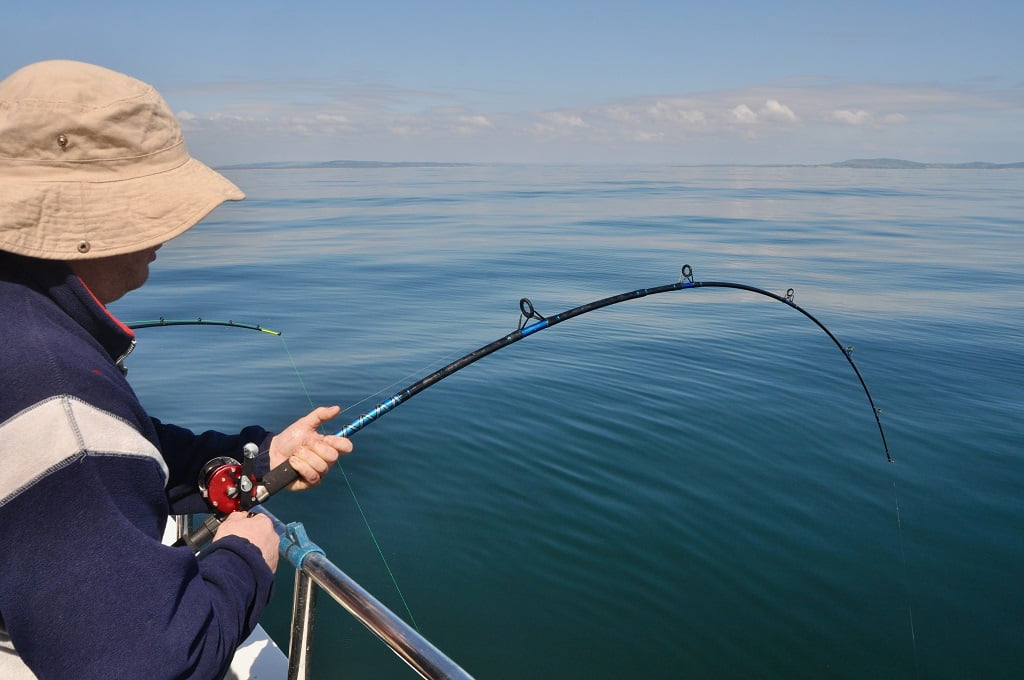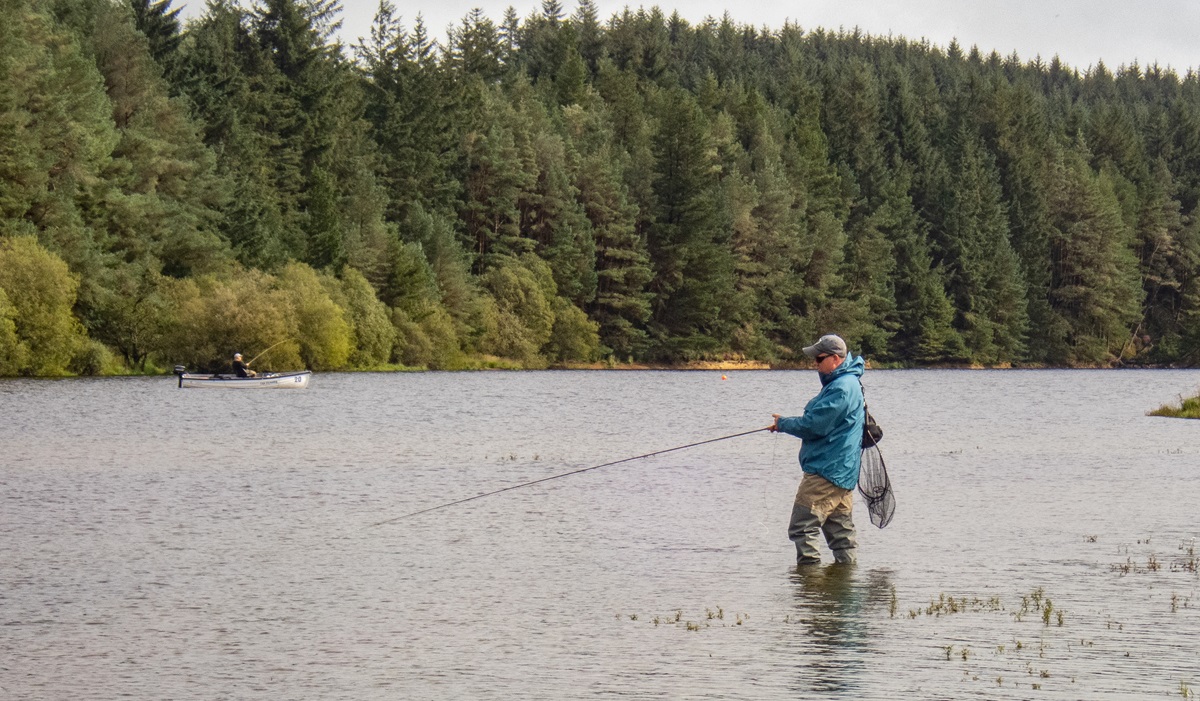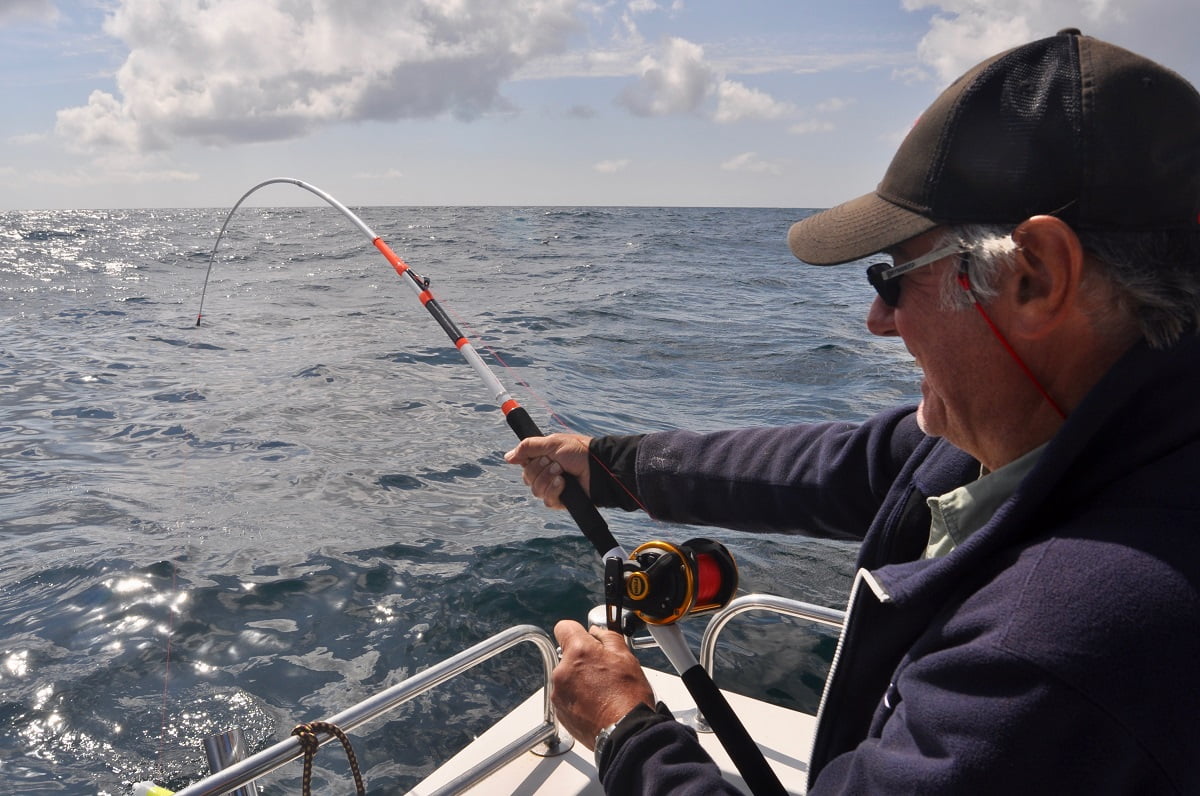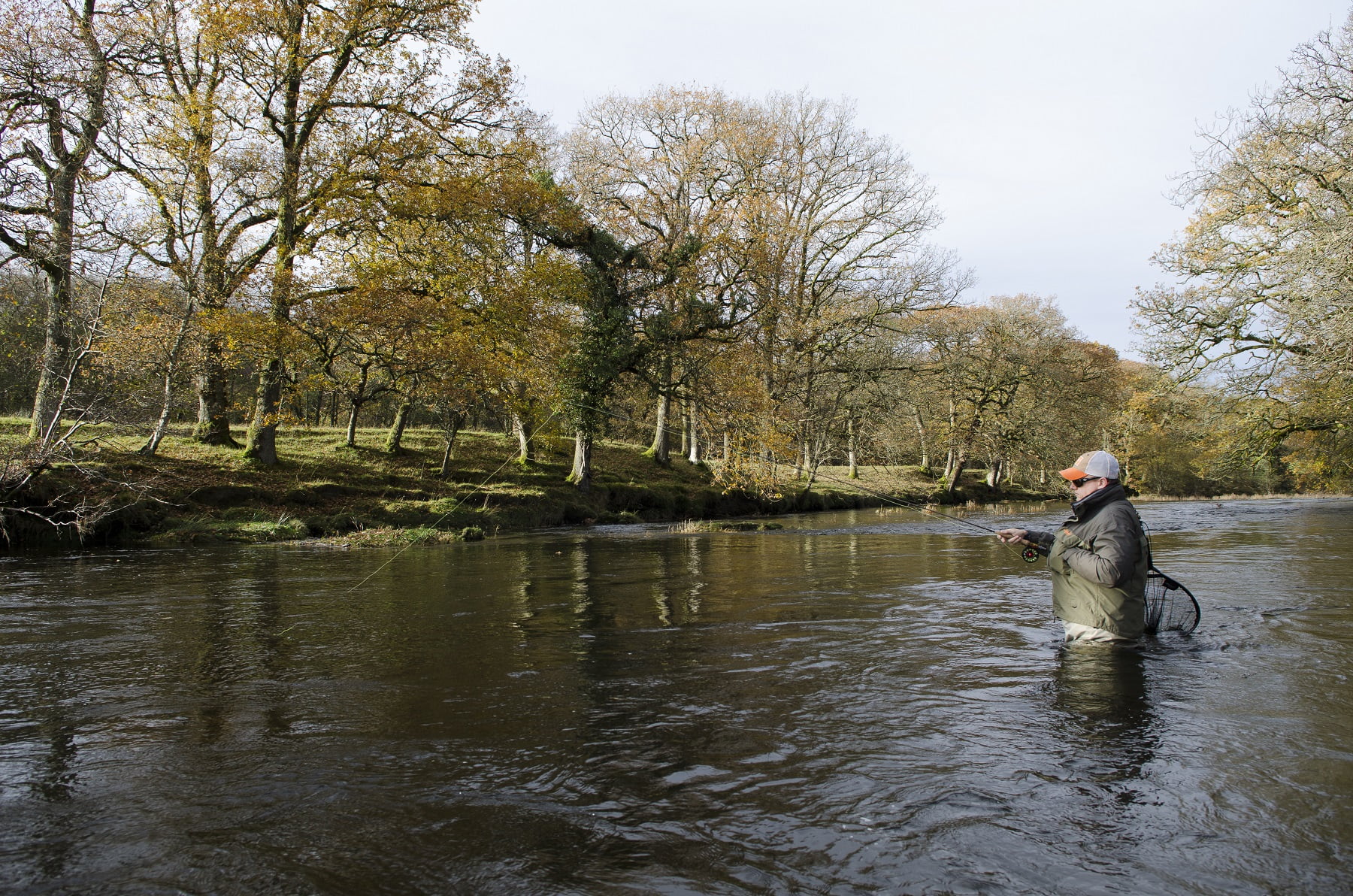Summer Sea Fishing In Wales
Dave Lewis reports on summer sea fishing opportunities around our glorious coastline, where in particular, bumper hauls of bass, tope and smoothound dominate the catches.
Recently I’ve had the classic aria ‘Summertime’ firmly stuck in my head; albeit with a slight twist to the lyrics. In my version the word ‘living’ from the original George Gershwin version, composed for the 1935 opera Porgy and Bess, has been changed to ‘fishing’ as in: ‘Summertime, and the fishing’s easy.’ And while it might be stretching things to say that during summer the fishing here in Wales is always ‘easy,’ few would argue that when talking in terms of what is available for visiting anglers the fishing is pretty much as good as it gets.
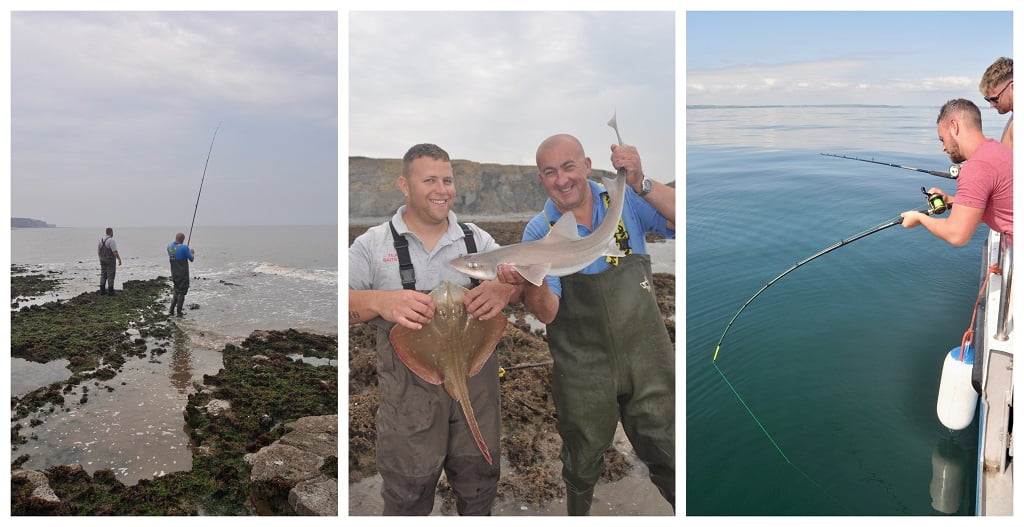
Anglers on holiday throughout Wales during the summer and early autumn months really do have a plethora of different species to target. Certainly it would be easier for me to compile a list of popular saltwater species caught around the coast of UK that cannot be caught here, rather than attempt to list those that can. One thing that is for certain is both boat and shore anglers have plenty of options to choose from, and that always there will be something to suit the requirements of experienced and novice, and the elderly and young alike.
Such is the rich and varied topography of the Welsh coastline visiting anglers are not only spoilt for choice when it comes to deciding which species to target, but also in their choice of which techniques to use. Many anglers who choose to holiday here generally fish in freshwater, for species such as carp, barbel or pike, and the tackle they use in their home waters is perfect for many sea angling scenarios. For example lure fishing is currently enjoying a huge surge in popularity amongst sea anglers fishing for species such as bass, pollack and mackerel, and a standard carp or pike outfit is absolutely perfect for fishing lures in the sea. Likewise a lot of freshwater tackle is perfect for float fishing in estuaries, harbours and the open sea for species such as mullet, or even casting baits on an open sandy surf beach.
There are three species of fish which are, in my opinion, synonymous with summer sea angling in Wales: bass, tope and smoothounds. While there can be no disputing that the numbers of many saltwater species are in decline throughout the UK, stocks of all three of these prime sporting species are not only healthy in Wales, but their numbers and seasonal distribution appear to be on the increase.
Bass are one species that appeal to most if not all anglers, and wherever you find salt or brackish water in Wales, you’ll find bass. In some areas bass can be caught throughout the entire year, but the very best sport with these beautiful fish will be available throughout the summer and autumn.
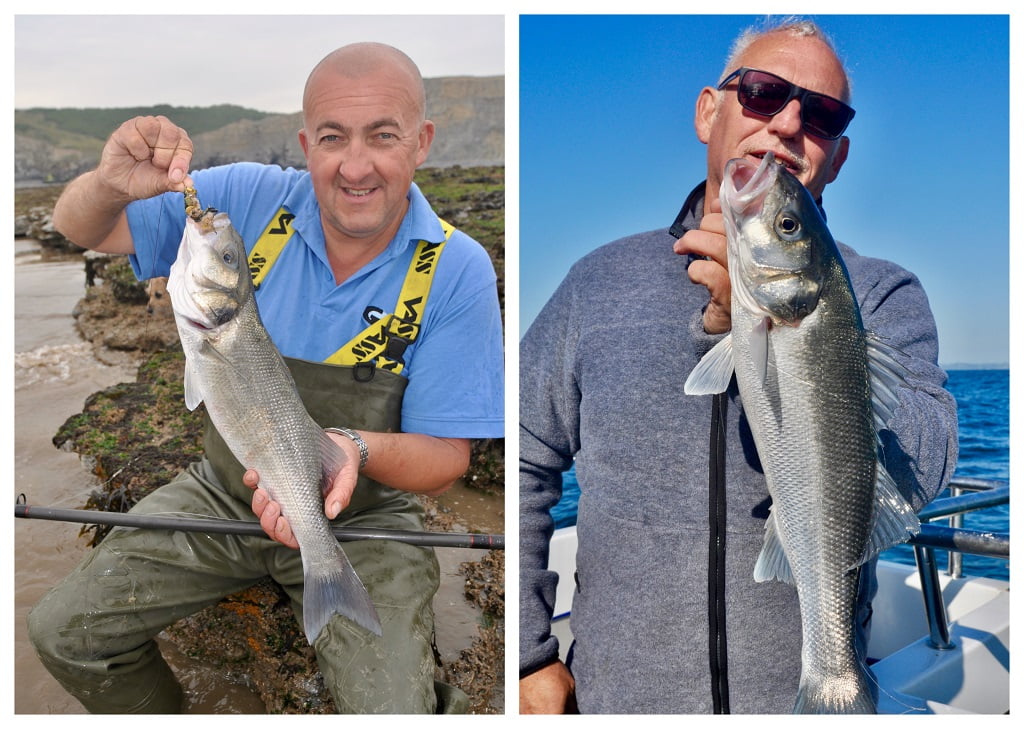
As we have already seen freshwater tackle is ideal for lure fishing for bass, which can be readily caught on pretty much any type of lure. Saltwater fly fishing is another technique that is increasing in popularity, and a standard 8/9wt fly outfit is ideal for bass fishing. But do make sure you wash your rod and reel thoroughly with fresh water after each session on the coast, to remove all traces of salt.
Local tackle shops invariably stock a comprehensive selection of those lures and flies which work best in their area, and I always recommend anglers on holiday to visit the nearest tackle shop at their earliest opportunity. In addition to being the obvious place to stock up on lures and other items of tackle and bait, local tackle shops are a valuable source of information and advice. If you want to fish for bass using bait nothing beats a juicy peeler crab or a live sandeel. Both baits can be either ledgered or presented beneath a float in a rocky gully or estuary channel, ideally as a making tide delivers what the great Welsh sea angler and writer Clive Gammon once described as ‘a tide of fish’ in his classic book of the same name, which was based in Wales.
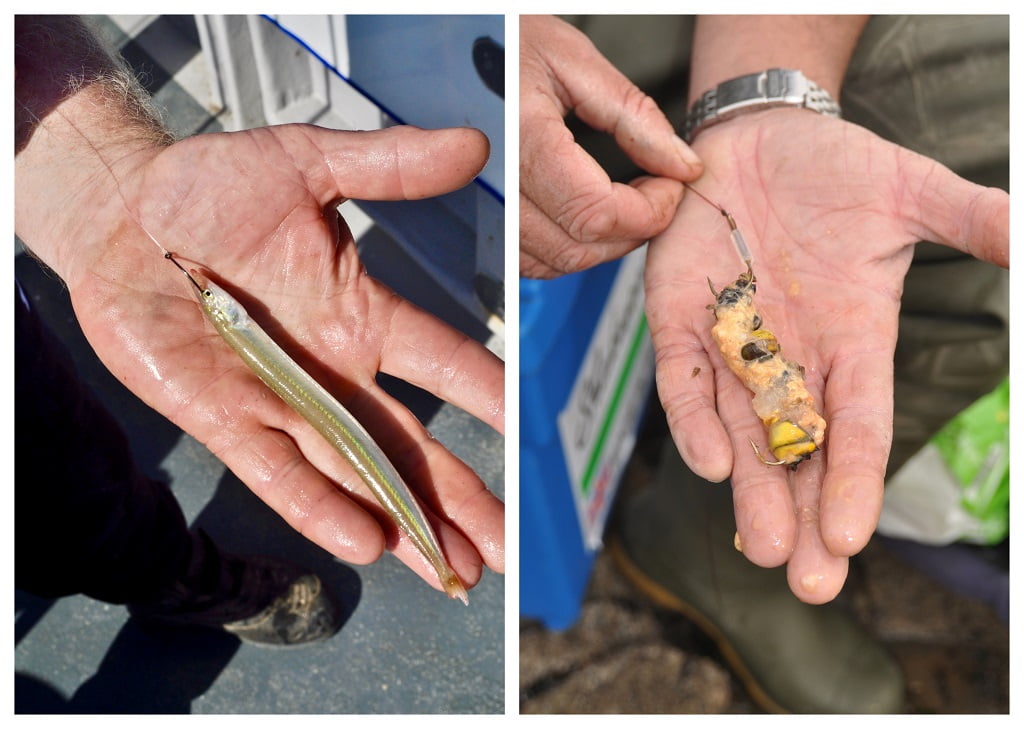
Tope are another Welsh speciality. A true member of the shark family tope can occasionally be caught from the shore, but in most areas you’ll have a much greater chance of success if you fish afloat. Charter boats are located at most Welsh harbours, and many of these accept bookings from individual anglers. Of course you can also book the full boat for a private group trip with family or friends. If you’d like to target a specific species such as tope then be sure to advise your chosen boat skipper, so that he will be able to select the most suitable dates and tides for the area you will be fishing. If you don’t own suitable tackle then most charter boats can supply everything that you will require, usually for a nominal charge.
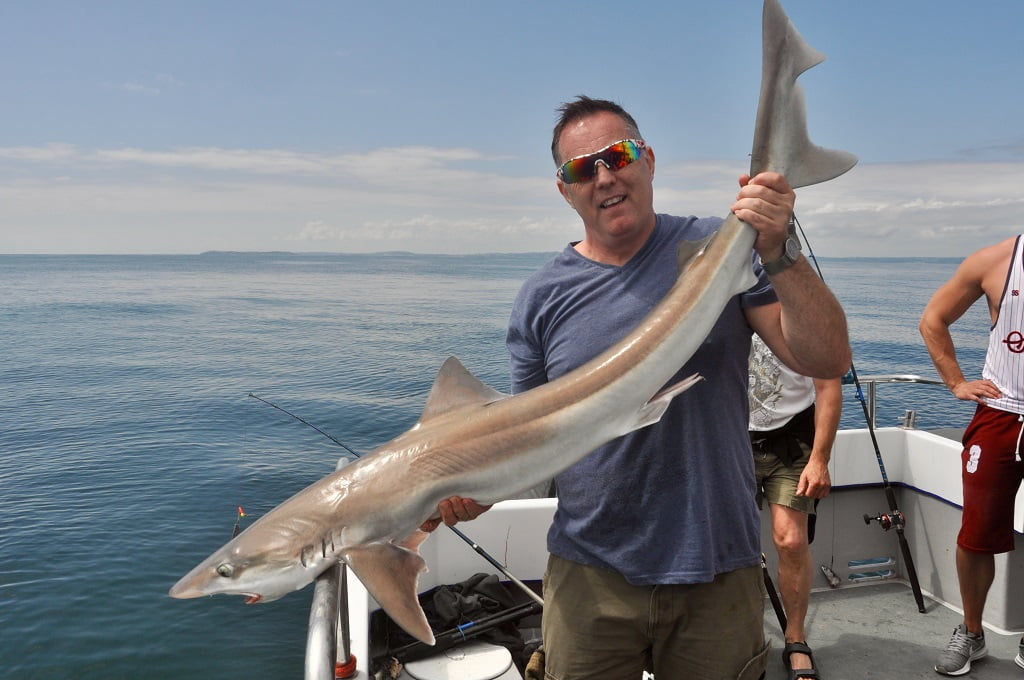
When I started sea angling in the 1970s smoothounds were a species rarely encountered in Wales. Back then these incredibly strong and fast running fish were only ever encountered at one or two very specific locations, and for a couple of months of the year. Today you can catch smoothounds almost anywhere you fish in Wales. These days the first fish have generally arrived inshore by the end of March, and remain until well into the autumn. During the peak summer months the numbers of smoothounds can be so high that at times I have heard them described as being a nuisance, usually by anglers targeting other species of fish.
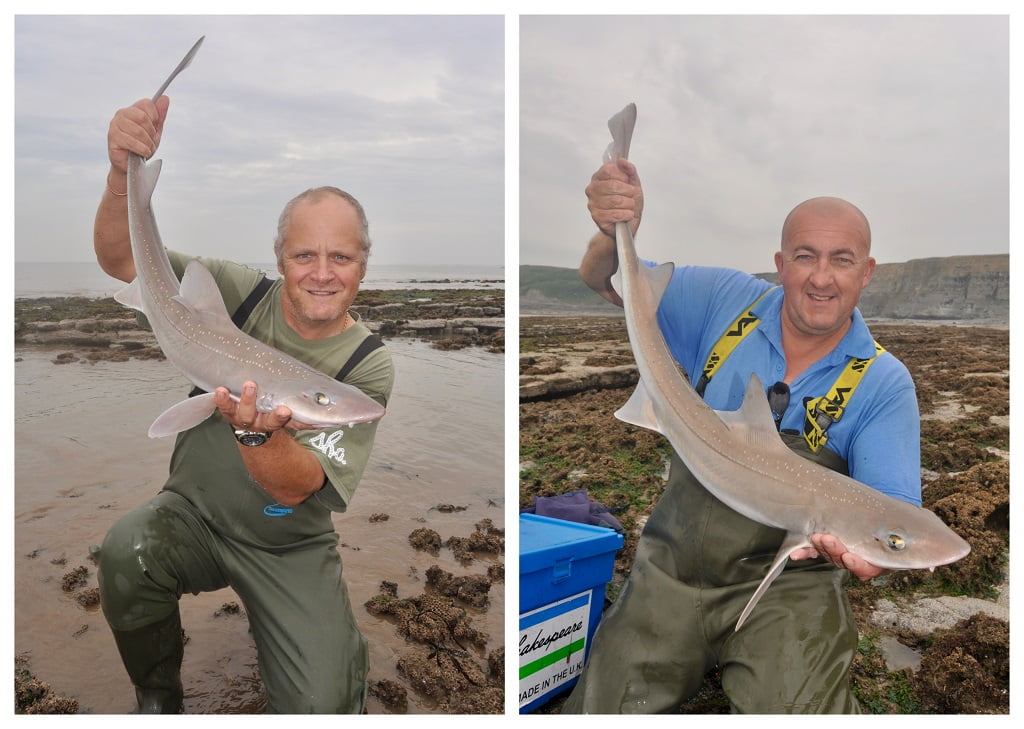
From the shore the most productive venues for catching smoothounds are generally associated with rough or broken ground, the type of ground where foraging packs of fish can locate the crabs and prawns upon which they feed. That said, increasingly these days angler catch large numbers of smoothounds when fishing sandy beaches using worms or shellfish for bait. More than an occasional angler has been surprised when the large bass he has just fought in the surf turns out to be an 8lb smoothound! Unsurprisingly peeler crab is the number one choice of bait for smoothounds, indeed I’d go so far as to say that if you are using crab and you don’t catch a smoothound, then for the time being at least there aren’t any fish in the vicinity!

Whereas the numbers of smoothound shore anglers can expect to catch are high, if you fish offshore the numbers of fish you can catch on some days can be truly staggering. Fish from a charter or a private boat or even a kayak during the summer, and huge catches of smoothound are more of the norm rather than the exception. On many days the only limit to the number of fish you catch will be time, and the amount of bait you have at your disposal.
Many anglers fishing open sandy beaches use baits such as sandeels, squid or various types of marine worm to catch rays or bass, and increasingly these baits are proving productive for smoothounds. Carp rods are ideal for fishing sandy beaches, where they are the ideal choice bass and smoothounds. The average size of smoothound caught around the Welsh coastline is probably between 5-8lb, but in many areas fish weighing well into double figures are frequently encountered. Hook one of these fast running fish on your favourite carp or barbel rod and you’ll soon discover just why sea angling in Wales is such a hugely popular summer activity!
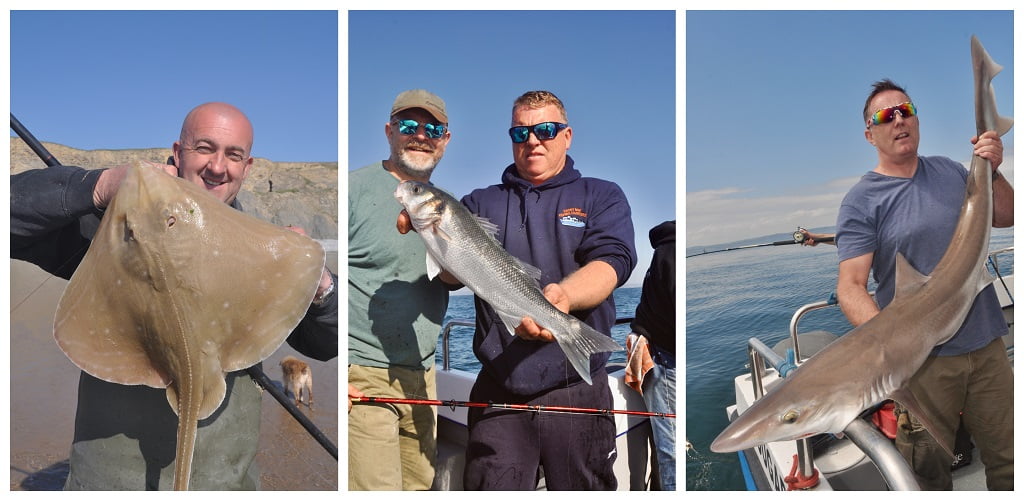
PLEASE NOTE: From 1 March to 30 November not more than two bass may be retained per recreational fisherman, boat or shore, per day. Outside of this period all bass must be immediately returned. The minimum size of European bass that can be retained is 42 cm.
Welsh FISHING RIVERS From The Sky VIDEO
Discover the wild fishing rivers of Wales from above! This cinematic drone montage follows some of Wales’ most breathtaking fishing…
Read More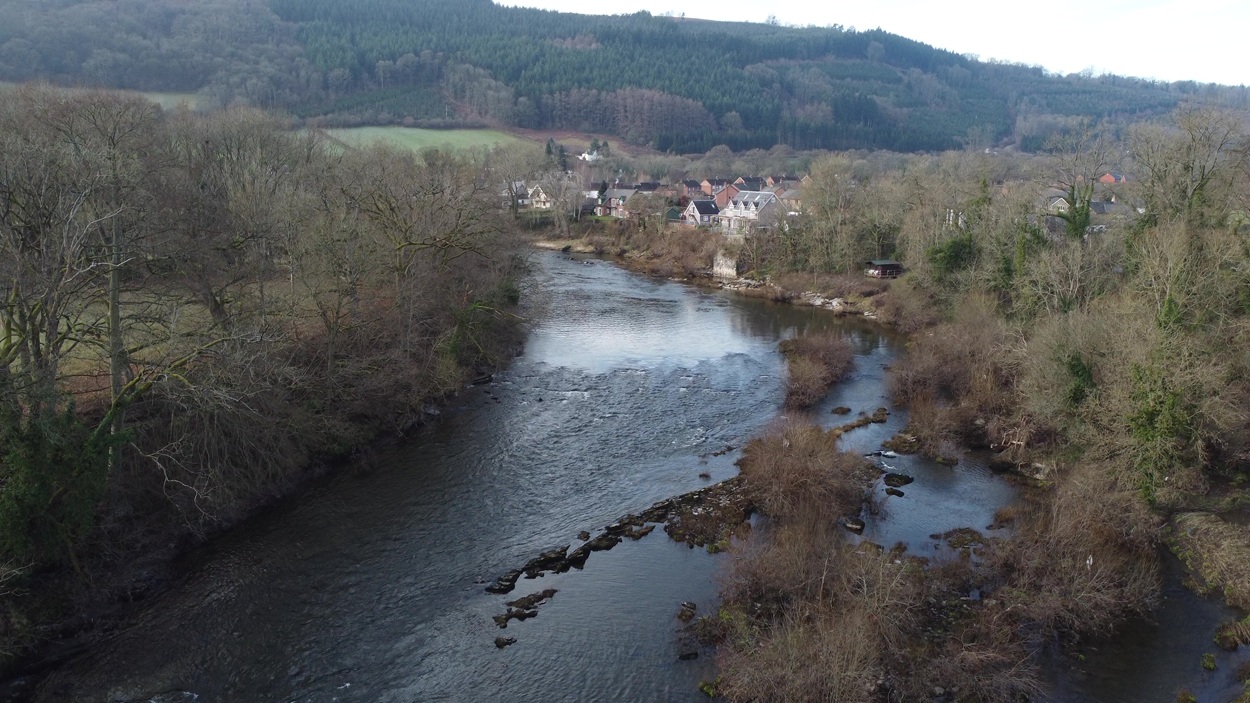
Wye & Usk Foundation Fishing Passport News
The latest newsletter from WUF – with details of fishing opportunities for Wales!Contact The Fishing Passport for more information and…
Read More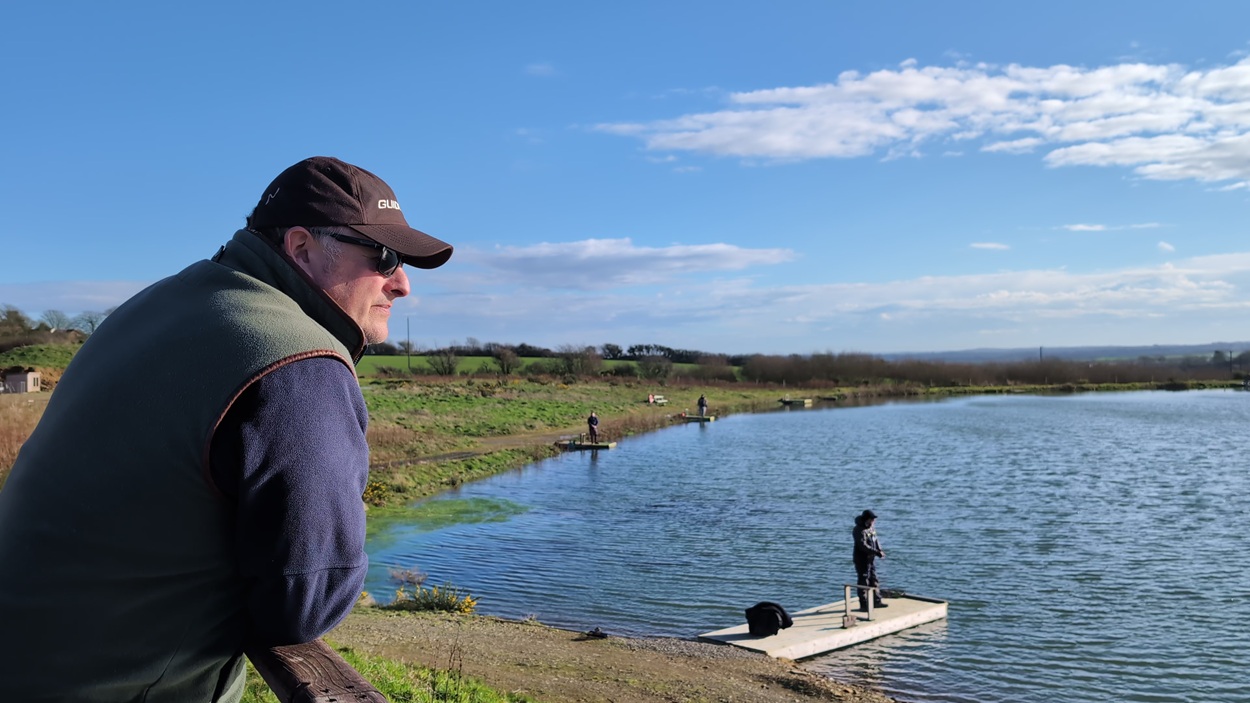
Fishery Profile VIDEO: Foxhill Trout Fishery West Wales
We visit Foxhill Fishery, a trout fly fishing venue near the village of Camrose, just outside Haverfordwest in Pemrokeshire.
Read More
